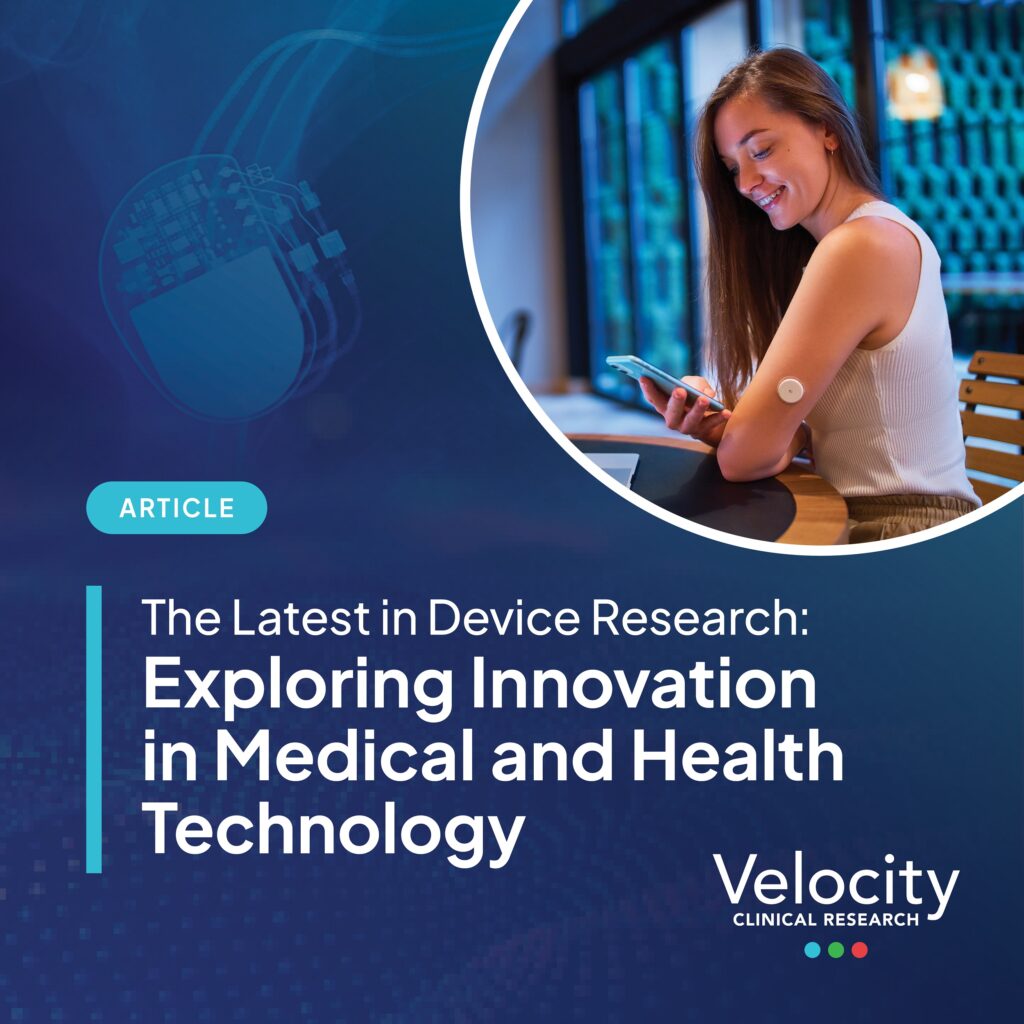What Are Medical Devices?
Medical devices are tools, machines, or technology designed to diagnose, prevent, or treat health conditions. These can range from simple tools like glucose monitors to advanced innovations like wearable technology, pacemakers, and even robotic surgery tools, seem like they could be straight out of a sci-fi story.
In recent years, device research has expanded into the digital realm, including combination mobile apps and wearable health trackers designed to monitor vital signs and improve overall well-being. The U.S. Food and Drug Administration (FDA) groups medical devices into three categories based on their risk levels:
- Class I (low risk): Bandages, handheld surgical instruments, etc.
- Class II (moderate risk): Blood pressure cuffs, pregnancy tests, etc.
- Class III (high risk): Pacemakers, heart valves, and other life-supporting devices.
With the rise of health-conscious consumers and advances in technology, wearable devices and mobile health apps have gained immense popularity. These devices not only support patient care but also provide valuable real-time data for clinical trials.
Why Clinical Trials for Medical Devices Are Important
Device clinical trials are crucial for ensuring the safety, accuracy, and effectiveness of medical devices before they are widely available. Paid device studies test everything from advanced technologies like pacemakers and implantable devices to innovative mobile apps designed for chronic disease management.
The global medical device market is expected to grow steadily, driven by increasing consumer demand and groundbreaking research. However, this growth underscores the need for thorough testing to meet regulatory standards and ensure patient safety.
Types of Medical Devices in Clinical Research
Clinical trials for devices explore a wide range of products, including:
- Wearable Technology: Devices like fitness trackers, smartwatches, and ECG monitors that track vital signs and provide real-time health data.
- Mobile Apps: Health-related apps that manage conditions like diabetes, hypertension, or mental health by providing reminders, monitoring trends, and enabling patient-provider communication.
- Implantable Devices: Pacemakers, stents, and other surgically implanted devices that treat chronic conditions or life-threatening diseases.
- Diagnostic Tools: Devices used to detect and monitor diseases, such as blood pressure monitors, glucose sensors, or imaging technology.
Healthy Volunteers vs. Specific Diagnoses in Device Studies
Device clinical trials often cater to two broad groups of participants:
- Healthy Volunteers:
Some device studies are designed for healthy individuals to test products like health data trackers, thermometers, or wearable technologies. These studies aim to evaluate how well the device performs in capturing accurate data under normal conditions. Healthy participants help researchers validate the functionality and usability of these devices. - Participants with Specific Diagnoses:
Other trials require participants with specific conditions to evaluate diagnostic devices (e.g., blood glucose monitors for diabetes) or treatment devices (e.g., pacemakers for cardiac conditions). These trials focus on assessing the effectiveness, safety, and benefits of the device in managing or treating particular medical conditions.
Understanding these distinctions ensures that participants can find a trial that aligns with their health status and contributes meaningfully to the advancement of medical technology.
Trends in Medical Device Research
Recent advances in technology have revolutionized how devices are designed and tested. For example:
- Artificial Intelligence (AI): Many devices now incorporate AI algorithms to analyze data and provide predictive insights.
- Remote Monitoring: Devices allow healthcare providers to monitor patients’ health from afar, reducing hospital visits and improving outcomes.
- Personalization: Devices and apps are increasingly tailored to individual health needs, enabling personalized treatment plans.
Medical Device Clinical Trials at Velocity
Velocity Clinical Research is at the forefront of device studies, testing innovative products that aim to improve patient care and outcomes. From wearable tech to specialized diagnostic test devices, our trials ensure that new technology is safe and effective before hitting the market.
Paid Device Studies: What to Expect
Participating in a device clinical trial offers unique opportunities:
- Compensation: Most trials are paid, offering financial incentives for your time and commitment.
- Access to Innovation: Participants often gain early access to cutting-edge technology.
- Healthcare Monitoring: Receive expert care and monitoring during the study.
Be Part of Device Research Trial
Velocity Clinical Research is currently conducting paid device studies on mobile apps, wearable tech, and more. By joining a study, you’ll contribute to the advancement of medical technology and help improve future healthcare solutions.
If you’re interested in learning more about device clinical trials or would like to participate in one, visit our Find a Study page to sign up to connect with a recruitment specialist.

